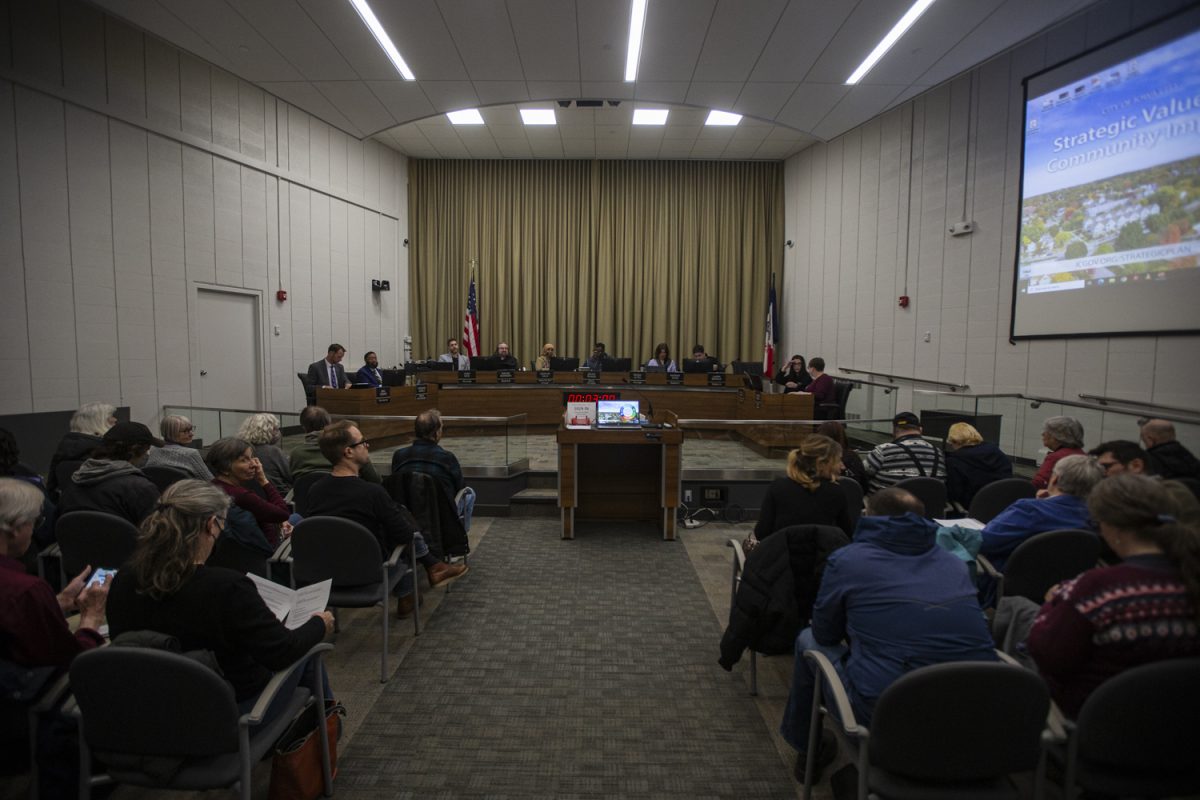The Iowa City Council is looking for community input on various city council concerns, which will be measured through the National Community Survey, a benchmark survey meant to examine key issues of livability in the city, according to a release.
Over the next few weeks, randomly selected households in Iowa City will receive mailers containing postcards for the survey. The survey will be administered by Polco, an online polling platform, through a partnership with the city council.
Iowa City is the first in the area to conduct an official National Community Survey.
Kelly Hayworth, the city administrator for the City of Coralville, said in an email to The Daily Iowan that Coralville has never conducted a National Community Survey. Hayworth wrote that Coralville has issued a survey as a part of its community plan, but it did so several years ago.
The survey in Iowa City contains questions about safety, livability, and how long residents will continue to live in the city. Most of the poll questions are on a scale of one to five, going from “very likely” or “excellent” to “don’t know.” The responses vary from question to question. It also asks residents about their thoughts on the effectiveness of public employees.
The survey is conducted online, and households that receive the mailer can scan the code on the postcard to submit a response.
This is the first time Iowa City has used the National Community Survey, but it’s not the first time the city council has used a survey to gather community input.
Iowa City issued similar surveys in 2013 and 2017. Still, the new survey will gather feedback on two specific city council concerns, City Manager Kirk Lehmann said.
Lehmann said doing surveys over time helps model important trends. He also said the surveys in 2013 and 2017 helped to gather data on general issues.
Lehmann said the mailers will be sent out on Sept. 16. After the initial survey period, a second wave will be sent out to households that did not respond initially. Then, an open participation survey will be available on Oct. 7 for those who received mailers and will close on Nov. 4, Lehmann said.
Lehmann said the goal of the survey is to see where the city can make livability improvements.
“We’re trying to identify if there are any weak points or any points that are strengths that the city has been doing well,” Lehmann said.
Lehmann indicated that one issue the city is looking to measure response to is the local option sales tax, which Iowa City doesn’t currently employ, and the city has levied such a tax in the past. This tax would be in addition to the state sales tax and had not previously implemented. Lehmann said the city might apply the local option sales tax to help raise funds for future city projects.
RELATED: Iowa City Housing Authority to close public housing applications
Iowa City City Councilor Josh Moe said the survey is being conducted because the city council wants to make data-driven decisions. Moe said the survey will cost the city $34,800 across fiscal 25.
“Regularly at city council meetings, I say ‘Do we have information?’” Moe said. “I firmly believe, in order for us to make good decisions, we need to know what our community wants.”
Moe said the city is gauging community interest in the local option sales tax and transit matters. He said many community members have been vocal in their support of the fare-free transit program.
“We’ve invested a lot in public transportation, and there’s going to be some mobility questions, and the survey will sort of prove that,” Moe said.
The survey is randomized, but within predetermined demographics. He said the city wants a full response from all demographics in Iowa City.
“All are important groups of people, and it’s important to understand the difference between them,” Moe said.
He said representing residents’ beliefs should not be limited to elections, and that it is the council’s responsibility to seek the input of the broader community.
“Good listening is a cornerstone of good leadership,” Moe said.
Moe said he looks forward to seeing the data coming in once the surveys reach households in the coming weeks.
“I find it, personally, a very valuable tool,” Moe said. “I hope people do the survey and send it back. I take great stock and great value from what we learn.”



